As filmmakers we are all aware that there are three stages to making a film: pre-production, production and post-production. These stages have existed since the advent of film. But, within these three stages, the process of making film has and continues to evolve. Gone are the days where a studio is the only entity that gets to make movies. Independent film may have always existed but in this digital age storytellers now have the tools to write, finance, distribute and market their own films. And it’s because of that fact that I would like to welcome you to The Storyteller Series. The following – as well as many, many subsequent articles – is a continuation of the production diary we hinted at here.
What is The Storyteller? The Storyteller is a feature film co-written by 20 Questions Film creator Joe Crump and 20 Questions Film writer Rachel Noll. Joe will be directing the film, while Rachel is producing and starring. Independently financed and scheduled to start filming next year, the film is the story of a young girl claiming to be an immortal who unites a dysfunctional family while she explores a world teeming with magic in order to escape the traumas of her dark past. Though still in development the script was recently named a quarter finalist in this years highly regarded PAGE International Screenwriting Awards.
It’s one thing to talk abstractly about the idea and stages of filmmaking; it’s quite another when those stages are put into action. Stages merge – a decision in pre-production, such as casting, has an affect on the story and the script is rewritten. Financing may change a bank location called for in the script to a jewelry story. Access to visual effects (or lack thereof) may mean that a ghost is actually a monster in make-up.
And so The Storyteller Series will explore not only what is involved in each stage of the filmmaking process, but how each stage is being tailored and enacted during the making of an actual film.
Before we get started, though, remember that making movies is – and should be – fun! Just ask Barton Fink:
In order to understand our series, let’s discuss each stage that The Storyteller, like any film, will be going through…
Development: the birthing place of screenplays. The development stage is that interesting place where your idea goes through the metamorphous of becoming a screenplay. It’s during this process that the writer must ask him or herself: which of my many ideas is ready to be developed into something bigger? Once that decision is made, the question becomes: how do I start writing? Should I write a treatment and then outline scene by scene? What research do I need to do? What is the theme of my story? Many writers ask these and a multitude of other questions before even starting draft one while others will simply dive in and answer those questions along the way. However the questions are answered, it’s in your development stage that your writing craft and process is key.
Even adapting a book into a screenplay takes craft and creativity, just ask Charlie Kaufman:
Now, once the draft is written that doesn’t mean development is over. There are still rewrites, copywriting and financing to be done before you can move onto the next stage: Pre-Production.
Moving into the Pre-Production stage doesn’t actually mean that the script is locked and doesn’t need any further development. What it does mean is that financing has been secured and the process of planning the actual filming can begin. This means location scouting, casting, securing a crew, production design, costume design, and, perhaps most importantly, scheduling are coordinated. All of these variables will have an affect on the story, either changing it or further sharpening it. This is why Development leads to Pre-Production but, at a certain point, they exist simultaneously.
This is the point that The Storyteller is currently in. The script has been written, financing has been secured, so casting, location scouting and other parts of the pre-production process are now taking place while the script is being further developed and redrafted, as the pieces of the puzzle fall into place.
Let’s be clear – Every stage of the filmmaking process affects every other. It’s because of this that your story and thus your script will always be developing.
Some filmmakers consider Production or, in simple terms, the time during which the movie is being shot, to be the most stressful. Should we rehearse? Is there time to rehearse? How do I, the filmmaker, make sure I get all the shots I need? Should I “shoot to edit?” All these questions and many more are asked to and by the director every day of production. And again, just because the story has been developed and pre-planned to be one way, doesn’t mean that’s how it’ll be shot. What if you wrote and planned for a big chase scene in a field but it’s raining on the only day you have your stunt drivers available? Do you rewrite the scene or change what you’re shooting that day? Can you afford to lose a day of production? What the actor brings to a scene on the day of filming can also greatly affect your plans.
Here’s a fun behind-the-scenes story. Remember that scene in Silence of the Lambs? No, not the fava beans… the scene where Clarice tells Dr. Lecter about the ranch she ran away from as a child. Jonathan Demme actually planned to shoot flashbacks with a young Clarice but when they filmed the scene he knew the performances were so good, he simply didn’t need it. That film went on to win 5 Oscars including Best Picture, Best Director and Best Screenplay:
We’ve talked about Post-Production workflow before, but the actual stage of post-production is, like it’s sibling production, taken into consideration during the pre-production and even development stage. Do you plan to edit the film yourself or is it better to have an outside perspective? Visual effects, what can and can’t be accomplished with your budget? How can the sound such as Foley, ADR and mixing both hide problems and become a character in the movie? Should you commission an original score or pay to license existing songs?
There is a common belief that post-production is actually the final stage of the screenwriting process. Lines are taken out; scenes are re-ordered or taken out completely. This isn’t to say those scenes weren’t needed in the script. They can be cut for time or because the combination of the camera work, actors performances and pacing simply makes it so they’re repetitive and unnecessary.
Even master filmmakers like James Cameron refine their stories. Check out these deleted scenes from the film that put him on the map:
One may think that the filmmaking process is finished with post-production but it’s actually not finished until the film has been distributed. Distribution is about making people aware and getting them to see the film. Whether one should play the festival circuit? How to find a distributor and negotiate a deal that is mutually beneficial? How to market the film? These are all questions that need to be asked and pursued during pre-production, but the minutia of each detail can’t fully be answered until the film is complete.
Making a film is a long journey, one that The Storyteller is only at the beginning of. As this series develops we will dive deeper not only into each stage of the filmmaking process, but the process within these stages. Next up on The Storyteller Series: The Process of Ideas – which ones are worth pursuing and how do you start writing?
Movies about making movies can be funny too, especially with Woody Allen directing, check out this trailer for his film Hollywood Ending:
Be sure to subscribe to our newsletter in order to always get the latest articles as soon as they’re out. When you sign up you also get two free e-books that’ll help further your filmmaking career!

![1773213-1440x900-[DesktopNexus.com]](http://20questionsfilm.com/wp-content/uploads/2015/06/1773213-1440x900-DesktopNexus.com_-848x400.jpg)

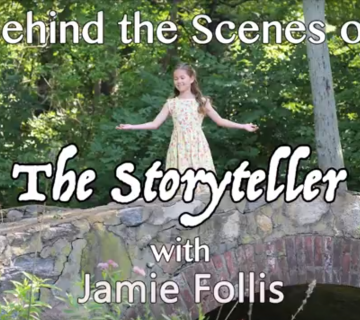
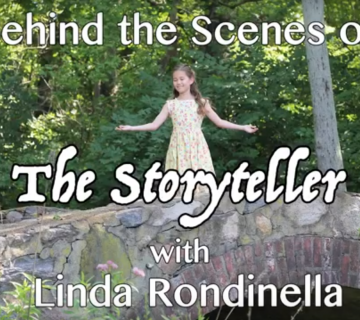
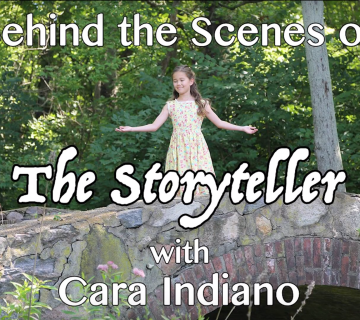
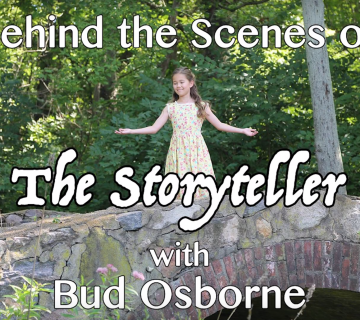
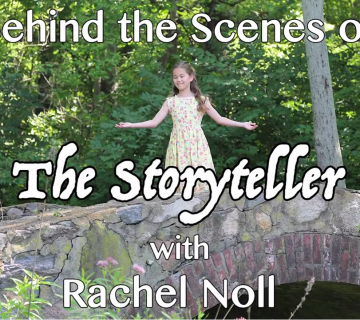
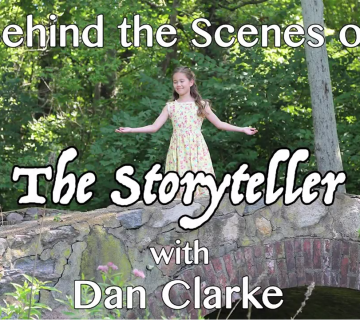

Join the Conversation →